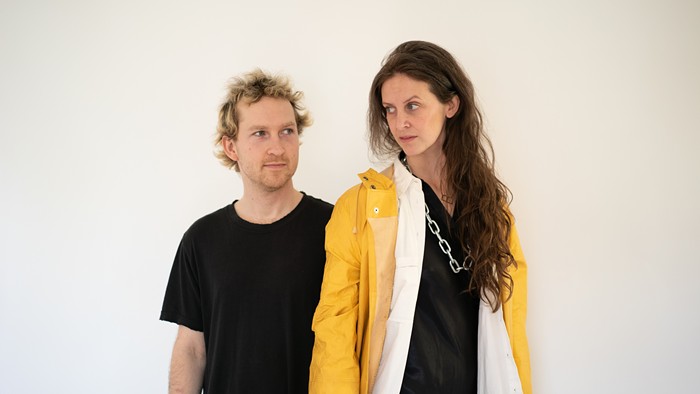THURS SEPT 8
Subhumans w/Kicker, Raukous, Rendered Useless; Hawthorne Theatre, 1507 SE César E. Chávez
It’s fitting that pissed-off, hyper-British, anarcho-punk band Subhumans is touring in 2016, the only year America has had any interest in UK politics. (I may not fully understand what “Brexit” means, but I’ve seen my fair share of tweets about it from people who also probably don’t fully understand what it means.) Subhumans’ anti-capitalist, anti-religion, class warfare-promoting catalog is still relevant today, especially in light of their home country’s recent political discontent. Staying relevant can be difficult for bands considered foundational in their genre, but Subhumans continue to propagate their political beliefs while embodying the punk ethos year after year.
SUN SEPT 11
Sad Rad w/Wolvves, Soccer Moms, Horse Movies; Analog Café, 720 SE Hawthorne
Sad Rad’s twinkly, simple indie rock is unabashedly pleasant. Escapism at its purest, the band’s most recent EP, Sick Girlz Lame Boyz, sounds like Youth Lagoon without any internal strife—Sad Rad exists in the manic pixie dream world created by indie rockers of yesteryear, where sadness is acknowledged but ultimately fleeting. The choice to keep audible background noise (shuffling, people talking, guitars tuning) in the final versions of the pretty synth tunes seems like an effort to edge up the recordings, but Sad Rad is a clean-cut band majoring in soft pop with a minor in twee. They find their groove in instrumental tracks and the delicate vocals of singer/songwriter Sophia Modica. Any reach for darkness (namely, references to anxiety or angst in song titles) seems insincere—Sad Rad is a confection, and although anguish can seem like the source of all art, owning up to blind positivity has a plethora of merits as well.
MON SEPT 12
Moor Mother w/Astral Tempest, Daniela Karina; S1, 4148 NE Hancock
The genres under which Camae Ayewa categorizes her music are as poetic and transfixing as the sounds themselves: “slave ship punk,” “black ghost songs,” and “witch rap” don’t and shouldn’t act as points of reference for listeners new to Moor Mother (Ayewa’s musical activist moniker), for she’s twisting familiar noises to a point beyond recognition and into an uncharted auditory plane. Moor Mother is protest music at its best and most contemporary—Ayewa uses oral history (ranging from political speeches by Angela Davis and Assata Shakur to punk samples) and cacophonous, industrial noise to reflect on and get riled about what still hasn’t (but desperately needs to be) changed. Perusing Moor Mother’s extensive digital discography is a mental trip to a world where all bodies move free, where all bodies can be angry, emotive, and erratic, and where the voice of the black woman is heard.


















